Young actuary leaders represent the future of the actuarial profession, bringing innovation, new perspectives and skills, and an embrace of leadership roles to guide it into the future. They are taking an essential role in contributing to the success and growth of the U.S. actuarial profession.
The Academy’s Rising Actuary Award provides national recognition to young actuarial leaders—35 years and younger or credentialed 10 years or less—who are making an impact in the actuarial profession. The 2023 class of award recipients will be honored at the Academy’s Envision Tomorrow: Annual Meeting on November 13–14.
Contingencies spoke with this year’s recipients about career advice, their mentors, generational differences in the workplace, new technology, and more. Based on their responses and the insights shared, the future of the actuarial profession is bright—the Academy is proud to recognize this year’s class of Rising Actuaries.
Here’s what we asked them:
- What was your reaction when you heard you were among the 2023 class of Rising Actuary Award recipients?
- Do you have a mentor? Tell me about them.
- What is one piece of advice that you always give actuaries just starting in their careers?
- Do you see many differences in how different so-called generations—Millennials, Gen Xers, Baby Boomers—go about their work tasks?
- There’s lots of talk about what younger actuaries can learn from experienced actuaries. What about the other way around—what can older folks learn from the younger generation?
- Do you find that you’re using next-gen tools like large language models, machine learning, or other AI applications in your workstreams? If so, talk a bit about how you make sure you’re adhering to the tenets of actuarial professionalism while using these cutting-edge techniques.
- What’s the biggest benefit you’ve derived from your Academy membership?
- Finally, will we see you at Envision Tomorrow: Annual Meeting 2023?
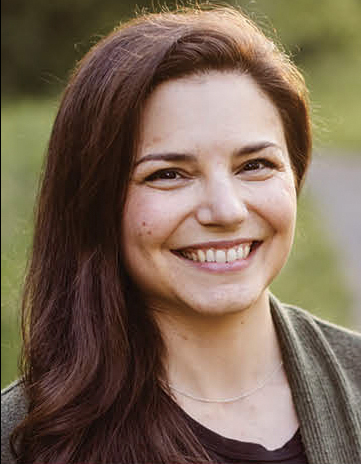
Megan Brown, MAAA, ASA
Associate Actuary, Cambia Health Solutions
Your reaction:
I was very surprised and honored to be nominated and to receive the award!
On mentors:
I have had many mentors over the course of my career, both formal and informal. Many of these mentors have been managers or senior actuaries who have helped me grow my career and skill set. Whether they have provided feedback about my career path or helped me to brainstorm a solution to a problem, their perspectives have been invaluable to me. I appreciate everyone who has helped me (and continues to) along the way.
Key advice:
Prioritize your exams, but don’t forget to have fun. It is always easier to get exams done while you are newer to the profession and have fewer responsibilities, but it is important to maintain the hobbies and activities that bring you joy. For most of us, the road to credentials is a marathon, not a sprint. Being able to enjoy life while studying helps to make the process more sustainable and less stressful.
Generational differences:
I think a lot of the differences I see are related more to level of experience than to the person’s generation. I have learned a lot from experienced actuaries in the way that they think about problems. Most experienced actuaries are skilled at seeing the big picture, which can be more difficult to do as a newer actuary. It is important to step back and consider the second- and third-order effects of our work so that we can serve our organizations and customers well.
Learning from the young:
Younger actuaries tend to ask many questions, mostly by virtue of being new to the field. This curiosity opens up opportunities for more experienced actuaries to consider things they may not have thought about before. Perhaps a methodology needs a refresh, or a model needs restructuring, or documentation needs to be clearer. There’s always value to considering a new perspective, even if it doesn’t ultimately lead to change.
On Academy benefits:
It is great to have access to high-quality continuing education through the Academy. There are so many opportunities to learn about various actuarial and professionalism topics.
See you in November?
Unfortunately, I likely won’t be able to attend this year. I appreciate the invitation and would love to attend a future meeting!
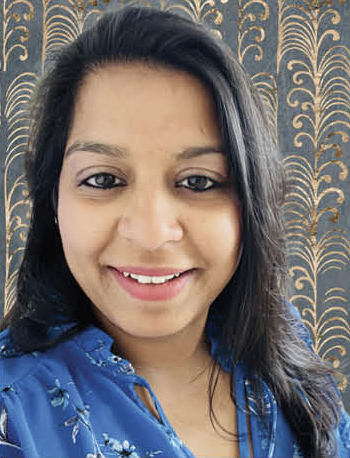
Shruti Gupta, MAAA, ASA
Senior Associate, KPMG
Co-founder and Board Member, South Asian Network of Actuaries (SANA)
Your reaction:
I felt extremely happy to be receiving the Rising Actuary Award. It brings with it a great sense of achievement. I am very grateful to Sherry Chan for recognizing my accomplishments and nominating me for this award.
On mentors:
I have three mentors—one at my current workplace and two at my previous workplace.
My mentor at KPMG is someone I am very impressed with. She is very approachable; we talk about our experiences and discuss ways on how I can grow in my career.
Both of my mentors from Prudential are now my very close friends, and they know me better than I know myself. We still meet in person or virtually and talk about our families, our lives, and our work (in general). They have helped me so much to grow both personally and professionally.
One of the mantras my mentor taught me was to follow the platinum rule (rather than the golden rule), which is “treat people the way they want to be treated” and it helped me learn how to build long-lasting relationships.
Key advice:
Be persistent, and don’t be afraid of failure. Taking exams is hard work—but it is so rewarding to be an actuary.
Generational differences:
Rather than generations, I would say people have their own style of working. I am a Millennial, and I see other Millennials having very different work styles. It’s important to understand the person or the team you are working with; some may like hallway conversations, some a phone call, while others may like an IM instead of talking. If we mold our approach as per other people, then we can get things done much quicker and more easily. Tying it back to the platinum rule—“treat people the way they want to be treated”!
Learning from the young:
One of my colleagues is younger than me and I love learning from her. She is very easy to talk to. She has been with the company longer than me and knows so much more, and I am trying to learn certain internal processes that I cannot learn from LinkedIn or Google.
There are a lot of interns in my firm, and they create amazing presentations at the end of their internship. I reached out to them to learn some of the cool features they added to their presentation.
There is something to learn from everyone, we just need to have an open mind!
On Academy benefits:
The recognition awarded to young actuaries like me. Receiving the Rising Actuary Award is such an honor for me. I love my profession and I am so grateful to be recognized for my contributions!
See you in November?
Yes, I will be attending the reception on Nov 12and the award ceremony on Nov 13. I am looking forward to seeing Sherry and meeting President Ken Kent, Executive Director Bill Michalisin, and the other Executive Committee members.
Nov 12 is Diwali, which is our biggest Indian festival, and I am so happy I am getting to celebrate it with my village—my actuarial community, my friends, and of course my family!
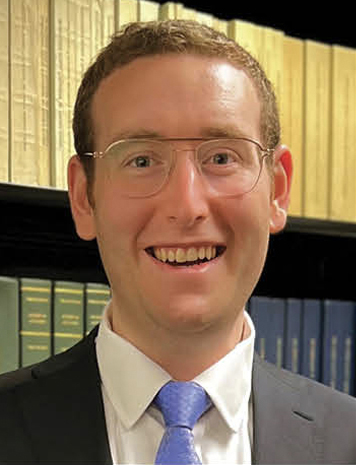
Joseph Lebel, MAAA, FSA, EA
Administrative Actuary, NYC Office of the Actuary
Your reaction:
A mixture of shock and disbelief—followed by excitement and a feeling of gratitude toward my chief actuary, Marek Tyszkiewicz, who nominated me.
On mentors:
While I don’t have an official mentor, I am fortunate to have many people in my professional life who effectively serve as mentors. Over the years, I have had various managers and colleagues that I could go to for all sorts of advice, whether it was work-related or exam-related. In addition, I found that there’s always something to learn from everyone I’ve met!
In my current role, I find the work environment in the public sector to be extremely collaborative, and it feels like everyone serves as a mentor. I am truly lucky to be working with such great colleagues and find that our office very much feels like one big happy family.
When I think of my first mentor in the actuarial profession, I naturally think of a professor I had in college who was a former actuary. He inspired me to become an actuary because I saw how much he enjoyed his line of work, and how passionate he was in serving the public with honesty and integrity. We kept in touch after I graduated but he recently passed away after battling an illness.
Key advice:
Always try to understand and approach problems from first principles. This is especially true when studying for exams, but it is also very helpful when tackling work problems. For example, instead of simply relying on the given model, try to gain a better understanding of how the given model actually works (of course, assuming time allows for it).
Related to this, never be afraid to ask questions, even if you are questioning the status-quo approach. There is always an opportunity to look at things from a fresh perspective, and never assume that “what we did last year” is the right way—our goal should always be to improve on our processes, and it’s the young actuaries who are in the best position to make it happen.
Generational differences:
To a degree, yes. I find that the younger generation tends to be more comfortable navigating their way around technology. At the same time, I find that the older generation tends to have an easier time developing an intuition for “back-of-the-envelope” approaches to solving problems. I think this occurs because the older generation needed to be more reliant on non-computational solutions, and therefore had to be more creative in developing simplified approaches for solving problems, while nowadays with advanced compute power it is easier to just “run” things.
Learning from the young:
I think many younger actuaries tend to be more comfortable working remotely than the older generation, and my guess is that this is primarily because of how accustomed the new generation is to communicating online.
On Academy benefits:
I find that the webinars are always interesting—they help with professional development. In addition, the ability to go back and watch webinars on-demand has proved useful to me, especially when embarking on a new project at work and needing to understand what some of the relevant issues or “hot topics” may be.
See you in November?
Absolutely! I’m excited to be able to attend the event in-person, and touring Washington, D.C., has been on my bucket list for quite a while, so this feels like the perfect opportunity.

Christopher Ludwiczak, MAAA, FSA
Consulting Actuary, Cheiron
Your reaction:
Honestly? I thought, “That sounds about right.” I’ve been devoted to becoming the best actuary I can be since I was 18. More importantly, I fell into the perfect situation at Cheiron working with some of the brightest actuaries around the country on complex problems from all parts of the country. Most days bring new challenges, and we are all constantly climbing the never-ending learning curve. I appreciate being nominated; my supporting cast catapulted me into this position.
On mentors:
I could write a book about all the incredible people I’ve had the privilege to work with and learn from over the years. My mother and brother were my initial mentors. I was mentally toughened by a British soccer coach throughout my teen years. My first bosses demonstrated incredible intelligence and hard work. I was lucky to find the perfect group of three other actuarial freshman to study for exam P and set my career trajectory. Since then, I’ve been mentored by about a dozen people within the Cheiron health consulting practice. I am simply an amalgamation of all these people.
Key advice:
Show up early and don’t be afraid to ask questions. These two things will get you a hell of a lot further in life than you think.
Generational differences:
It’s much less about a generational difference and much more about experience level as an actuary. Actuaries with decades of experience can look at a set of results and know whether something looks wrong; they may not know exactly what is wrong, but they will have some ideas. On the other hand, inexperienced actuaries routinely focus solely on setting up formulas and code, often without stopping to consider their first set of results and whether that makes sense within the circumstance. Those of us in the middle are constantly trying to bridge the knowledge and software gaps from both directions.
Learning from the young:
The older we get, the more ignorant we become of ways to improve old habits. It required a pandemic for many bosses to realize that wearing a collared shirt and being stuck in an office eight hours every day does not make us better at solving actuarial problems. Nothing could be more obvious to the up-and-coming generation. The older folks should remember to revisit why we do what we do and to eliminate obsolete, arbitrary, and silly rules.
On Academy benefits:
This lucrative profession has the esteemed distinction as trusted advisers to whatever stakeholders are involved in each situation. Without professionalism or consistency, there is no credibility as trusted advisers. The Academy and the Actuarial Standards Board provide those professionalism and consistency standards through both the Code of Professional Conduct and the ASOPs. The Academy serves as the shield for the profession and to preserve the integrity of the information we provide to stakeholders.
See you in November?
Yep.
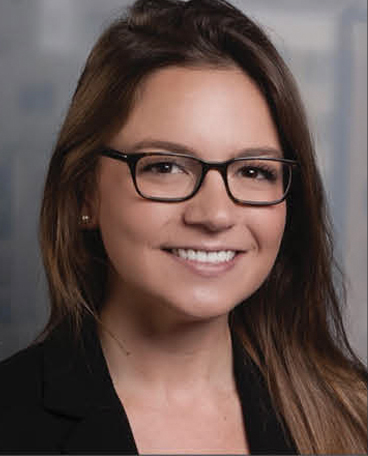
Angela McShane, MAAA, FSA, CERA
Senior Manager, EY
Your reaction:
I was surprised and honored to learn I had been selected to receive this award. I had just recently heard about it for the first time, so it was exciting to hear that I’m in the second class of recipients.
On mentors:
I don’t have a formal mentor, but I’ve had several people throughout my career that I look to for advice and guidance. When I have a decision to make or a question I need input on, I think it’s important to seek different perspectives from people with diverse experiences and expertise.
Key advice:
Take every opportunity to learn something new and ask questions. Find the experts you can rely on for various topics and utilize them when you can rather than struggling through something that’s been done before. And most importantly, take chances—if an opportunity doesn’t scare you a little bit, it’s probably not worth it.
Generational differences:
Yes, of course, there are many differences in how people from different generations approach things. One thing I’ve noticed recently is how Gen Z seems to focus on work-life balance much more than the older generations. It will be interesting to see whether that persists as they get older—and how that may change the working world in the future.
Learning from the young:
We can all learn from each other regardless of age and experience. To the question above, older generations can learn from younger actuaries to set boundaries and better balance priorities in and out of work.
On Academy benefits:
I value the learning opportunities offered by the Academy—formal learning opportunities like webcasts, publications, etc., but also informal learning through volunteering. By participating in some of the Academy’s work groups and committees, I’ve had the opportunity to work with actuaries from different backgrounds who have a wide range of experience and insights to bring to the discussion on various issues.
See you in November?
I hope so! I am currently based in London, so it’s a bit of journey—but I hope I can make it.
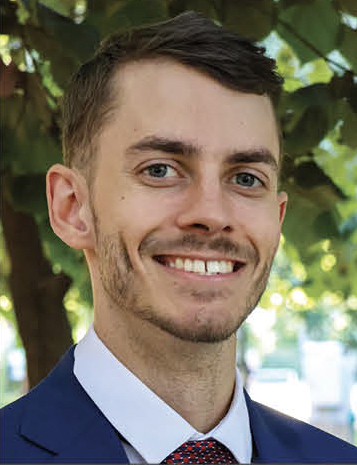
John Miller, FSA, MAAA
Consulting Actuary, Milliman
Your reaction:
I felt honored and very grateful for all the people and opportunities that have blessed me enough to be able to get to where I am to even consider applying for this award.
On mentors:
I consider Rob Pipich, my practice’s director and equity principal, to be my mentor. Despite how busy he is, he is able to make me feel appreciated, valued, and heard. I feel lucky to be able to benefit from the tutelage of someone so respected across our firm at such an early stage in my career, and I feel that Rob pushes me out of my comfort zone and helps me grow in ways that I never could on my own.
Key advice:
Passing exams is important, but don’t lose sight of enjoying life outside of work and exams.
Generational differences:
I feel that generational differences are more muted among my colleagues than outside of my actuarial workplace. For example, I’m often impressed by the actuaries with many decades of work experience and their grasp of new technology and programs. With that being said, there are at times some small nuance differences, such as a greater tendency to physically print out documents or a greater interest in meeting face-to-face.
Learning from the young:
It seems that younger actuaries are more in-tune with the work-life balance associated with remote work, as well as the opportunities that large language models present. Both of these are relatively new to the workplace, and at times it is harder for more experienced workers to embrace new workplace changes. My workplace has fully embraced remote work, by ending the office space lease at the start of this year—the Philadelphia Health practice at Milliman that I work at is fully remote.
On Academy benefits:
While I am still new to Academy membership (I joined less than two years ago, since I believe there was a three-years-of-work-experience requirement) I have enjoyed the webinars and continuing education opportunities. I’m someone who often listens to podcasts, and therefore I enjoy topics related to my work where I can better educate myself. While I haven’t experienced it much yet, I look forward to the networking opportunities that I expect will be present at the upcoming meeting.
See you in November?
Yes! I’ll be attending the meeting and joining the dinner as well with my wife as my +1.
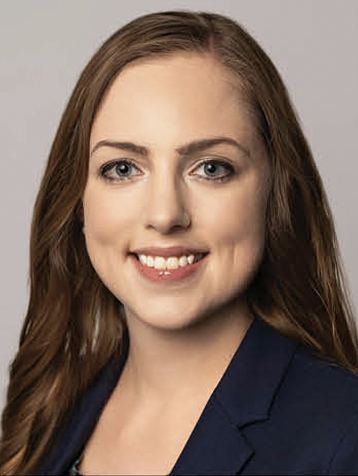
Alissa Nordin, MAAA, FSA
Principal Actuary, Prime Therapeutics
Your reaction:
Surprised and delighted! I am very grateful for this award and feel honored to be recognized by the actuarial community.
On mentors:
Yes, I have a few mentors at my company (one of whom was my nominator!). My mentors play an important role in my professional growth and help me find ways to improve. They encourage me to take challenging opportunities and are there to support me. I appreciate having multiple mentors, as their different views and strengths are all valuable.
Key advice:
I encourage new actuaries to take opportunities that push them out of their comfort zone. Taking on new projects or presenting to new groups will likely not go perfectly the first time—but this is the best way to grow.
Generational differences:
I do not see many differences in generational work styles in my current role working remotely. Prior to switching to remote, I think generational work preferences were more apparent. In general, the younger generations were advocates for work-from-home flexibility, where older generations preferred to be in office five days a week. Older generations also preferred hard-copy printouts, while the younger generations preferred to use less paper both for environmental reasons and preference of viewing on screens. When it comes to technology, I think all generations are proponents of learning and using the latest and greatest tools.
Learning from the young:
I think the older generation can learn how to embrace change from the younger generation. This applies to both new process ideas and more broadly to how we work in general. I wonder how the younger generations will modernize work beyond the hybrid and work-from-home culture.
On Academy benefits:
I appreciate the opportunities for continuing education, especially the sessions on professionalism. Sessions led by members of the Actuarial Board for Counseling and Discipline (ABCD) have been some of my favorite continuing professional development credits. Knowing the ABCD is available for counsel if needed is comforting as actuaries continue to navigate complex problems.
See you in November?
Yes! I look forward to attending the conference sessions and meeting fellow award recipients.
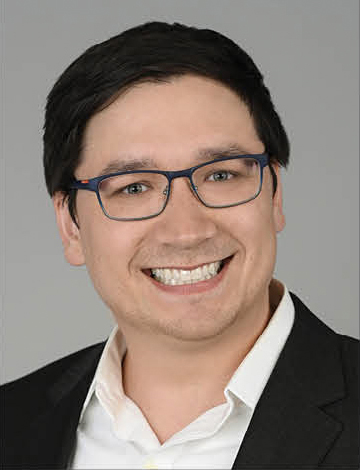
Peter Ott, MAAA, FCAS
Senior Pricing Officer—Property, Swiss Re
Your reaction:
I was shocked, to be honest. Having looked through the candidates from last year, I wasn’t sure if I was going to make the cut.
On mentors:
I don’t have an official mentor per se, but I’ve been lucky to learn from some amazing actuaries. In my current position, a fellow actuary and colleague of mine, Javanika Weltig, has given been a tremendous source of knowledge. Javanika has seen just about all there is to see in the property reinsurance world, and she keeps me well grounded.
Key advice:
I would encourage new actuaries to spend some quality time understanding the underlying product and speaking with underwriters and claims adjusters to get a good handle on how these products are intended to behave. The story isn’t always in the raw numbers.
Generational differences:
In general, I would say I personally don’t see too many differences. I think the differences in how people approach their work is more aligned with their mindset rather than their generation. At times I find myself sticking to the classical methods, and other times I’m digging through actuarial literature to see whether anyone has come up with something new.
Learning from the young:
I continue to learn new techniques from younger actuaries that are being introduced into the education system, and ways of being more efficient with my coding and Excel work. There are so many new packages and features that I lose sight of whether I’m using the latest and greatest.
On Academy benefits:
For me, it’s been the connections I’ve made working with other actuaries, and also seeing the impact of the Academy’s work. The Academy is working on very meaningful topics, and I take a lot of pride in helping put forth thoughtful analysis.
See you in November?
Yes!
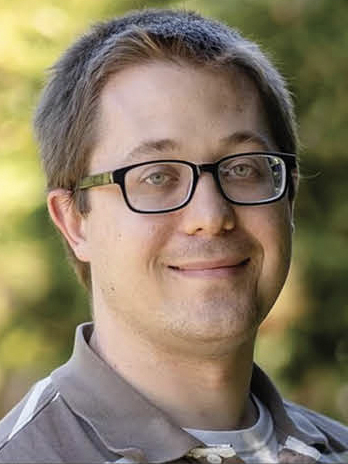
Tony Pistilli, MAAA, FSA, CERA, FCA, CPC
Consulting Actuary, Axene Health Partners
Your reaction:
I was surprised. When a former peer and ongoing friend said he nominated me, I told him he was significantly overstating my qualifications for the award.
It is a great honor to be recognized. The actuarial career has rewarded me more than I could have imagined when I first decided to pursue it in college.
On mentors:
I have never had a formal mentor, but I have learned from a number of peers and managers, both in terms of what to do and what not to do. It was two bad bosses who taught me how toxic gossip can be to a department and how uplifting honest feedback and open communication can be, and the role of a manager in advancing the work of their analysts across an organization. I had a really great boss (who was not an actuary) who helped me emerge from the sometimes isolated environment of actuarial departments and engage with an organization more broadly. My current manager has been a great model of business management and organizational vision.
Key advice:
Say “yes” frequently. Try to get involved in as many things as you can. You will feel underqualified for most tasks, but you’ll impress yourself with how quickly you can learn. As you’re just starting, it is important to develop breadth of experience as well as depth. But you want to avoid limiting yourself to a siloed role in an insulated actuarial department. Having developed broad experiences has been a great asset as I enter the second decade of my actuarial career.
Generational differences:
I think differences in generations can be overblown. I’m not sure Boomers are cranky grumps or Millennials are entitled, or what have you—it’s more that 55- to 70-year-olds can be cranky grumps and entitlement comes with being 20 to 35 years old.
One interesting difference is how data played into actuarial analysts roles. Baby Boomers and older Gen Xers started their careers when data technology was not a huge part of actuarial work and you could succeed as an analyst without strong technical skills. Data came around when these generations were managers, and so they are familiar with how to manage data work without being technically strong themselves (very generally speaking). Younger Gen Xers and Millennials were the main data professionals in their companies, and so developed very strong technical skills. Gen Z is now entering actuarial departments where data science teams have become the man data professionals in many companies, and so the actuarial role is more about partnering with external data teams as opposed to doing the work themselves.
Learning from the young:
Younger generations can be quicker to adopt new technologies. We have seen with the rise of data science/predictive analytics that younger generations are able to pick up these tools quickly through the exams and by self-study. But as they look for opportunities to use these tools in their work, they can run into some headwinds from older generations who are more reluctant to dive into using these tools and develop an appreciation for their potential benefits over traditional methodologies. It is important to have stability in actuarial practice, but that stability can lead to stagnation and lack of creativity that reduces the impact of actuaries in their organizations.
On Academy benefits:
Especially working in health care, I recognize acutely the need for actuaries to be involved in public policy and regulatory discussions. The Academy’s connections to legislators and regulators are crucial to ensuring the work of actuaries goes beyond fulfilling technical roles within our limited organizational purviews.
See you in November?
I’d love to come, but my wife and I had our fifth child in June and she put me on a travel ban for 2023. It has been great being at home more, but I look forward to being at more industry events next year.
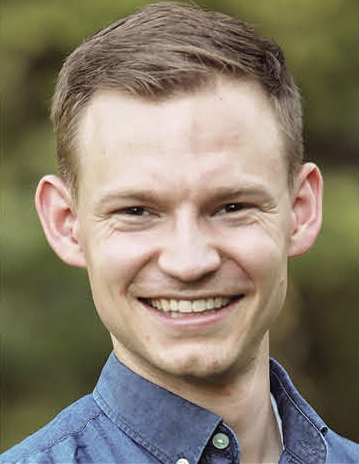
Justin See, MAAA, ASA
Analytics Manager, Blue Cross of Idaho
Your reaction:
Total surprise! I work with many incredible actuaries, and I’m not quite sure how I made the cut, but I’m honored to receive the award.
On mentors:
My manager supervised me during an internship during college, helped me land my first job out of school, and then recruited me to my current company. At the start I was totally naïve about the health care industry, and he has mentored me through project after project and through several different roles. When I first became a manager myself, I was very intimidated; his example showed me that effective analytics leadership was not only possible with the right principles but also that it could make a huge impact in the lives of your direct reports. He cares about those he leads—and it makes all the difference.
Key advice:
Something I didn’t have for much of my time in college was a clear map of what classes to take, how to time exams, how to be ready for internships, and how to distinguish yourself as an applicant for an entry-level role on a resume or in an interview. With guidance from a mentor who’s already been through it, the right map can help an aspiring actuarial student land a successful career path; find that mentor early on!
Generational differences:
I have found that even if some preferences are different (the tools we use, remote vs. in-person, expectations around work-life balance, etc.), getting the work done isn’t impeded if we focus on a common goal and establish a strong team culture.
Learning from the young:
Younger actuaries benefit from up-to-date higher education and the most recent actuarial exam process, which brings exposure to newer methodologies and new ways of thinking. With the right amount of trust and the right opportunities, they can change the way things have always been done and bring a lot of value to our organizations.
On Academy benefits:
Access to up-to-date industry information and ongoing actuarial education has been very helpful to me. I know I also benefit in a less visible but substantial way from the ongoing work the Academy does to advocate for the actuarial profession.
See you in November?
I will be there!
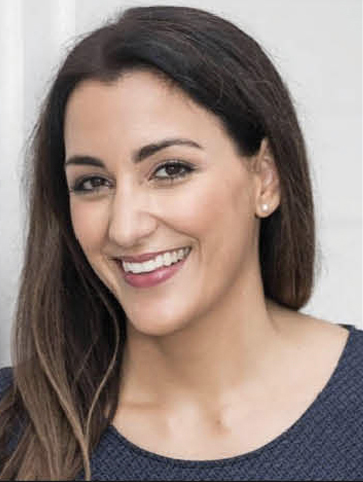
Monica Shokrai, MAAA, FCAS
Head of Actuarial, Analytics & Systems; Business Risk & Insurance; Google
Your reaction:
I was incredibly honored and humbled to be selected as a recipient of the 2023 Rising Actuary Award. I am grateful to the Academy for recognizing my contributions and for encouraging me to continue to lead and innovate within the field.
On mentors:
I’m a big believer in having mentors throughout your career. The most impactful mentors I’ve had have been sponsors and advocates, in addition to being mentors.
These individuals took risks on me, believed in me when I wasn’t sure that I could do something on my own and played pivotal roles in my career. Many of them were women, especially earlier in my career, who served as important role models for my future.
Key advice:
My main piece of advice is to take risks and be bold. Actuaries have a very clear path to success through the exam track and their critical role in the insurance industry. However, I’ve found that taking risks and exploring the ways in which actuaries can add value to businesses beyond the well-paved paths has been a very rewarding experience. It’s not always the easiest path, but it keeps you on your toes and ensures you’re continuing to learn and grow.
Generational differences:
I see a lot of differences between the generations, but each generation brings unique skills, perspectives, and experiences to the table. This diversity of thought can lead to more innovative solutions, and a more inclusive and productive workplace.
I’ve been particularly interested in how each generation utilizes tech. From the exam process, to the software used in our day-to-day roles, to how each generation engages in social media, there’s a clear difference between generations. It’s been particularly fun to see the newer generations use social media to raise awareness of the profession.
Learning from the young:
I’m a big believer in learning from others, regardless of years of experience. There’s a lot the younger generations can teach those that came before them. Newer generations can be incredibly helpful in teaching others how to lean into technology to help improve both accuracy and efficiency at work. It’s important to be open to learning from each generation, as that’s how one continues to develop new insights and perspectives.
On Academy benefits:
The biggest benefit I have derived from my Academy membership is the opportunity to learn from and network with other actuaries. The membership helps me stay up to date on the latest trends and developments and helps me feel connected to other actuaries.
See you in November?
Yes! I will be there and I’m looking forward to it!
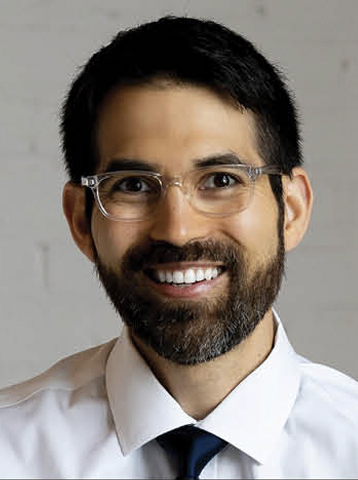
Samuel J.Y. Tashima, MAAA, FCAS
Director & Actuary; Head of Cyber Risk Consulting & Analytics—North America, Aon
Your reaction:
I was elated to find out I had been chosen as a 2023 class recipient! It was a privilege to be nominated by my business leader and also to have been selected by the Academy. I enjoyed seeing the 2022 recipients get to know one another at the 2022 Annual Meeting, and I look forward to meeting my fellow recipients at the 2023 Annual Meeting in November.
On mentors:
I’ve been fortunate and blessed to have more than one individual that I can call a mentor and coach from both within my organization and outside of my organization. I’m a big advocate for mentoring and coaching both as the mentor and the mentee. From my mentoring relationships, I’ve been able to learn, be challenged, and gain insights that can only come from a career in the business and professional industry.
One of the greatest benefits is the perspectives that my mentors from the actuarial vertical and other, non-actuarial functional teams have shared with me over the years. There are cyclical components to the insurance industry, and while a given line of business or industry trend may be infrequent, I can learn from the individuals who have experienced these trends and apply their insights and learnings to new and emerging areas of the insurance industry.
I’ve grateful for the open and candid conversations that I’ve been able to have with my mentors as they share their experiences and provide coaching to me within my career journey.
Key advice:
I like to articulate to actuaries and exam takers whom I’m mentoring to look for linkages and find connections between the everyday work that we’re doing and the broader relations to the social environment and economy. When I was an entry-level actuarial analyst, much of my time was spent analyzing large datasets, building actuarial models, etc. It is easy to be overly focused on the minutia of those large Excel spreadsheets and actuarial models. However, property insurance, pensions, and health care have significant impacts that underpin our society and political environment. Understanding how the work that we do fits into that broader ecosystem provides increased perspective on how we as actuaries inform and contribute to society.
Learning from the young:
I view this as a shared responsibility from everyone within the profession. There’s a responsibility for the profession to continue learning—whether that learning corresponds to the latest actuarial research, trends in the economy, or new and emerging data and analytics tools. I’ve found that I’m able to gain insight from my fellow colleagues and recent hires around data analysis tool development, recent exam program syllabus material, and current business school curriculum teachings. The overall goal of the profession should be one of learning and advancement, and that growth is able to come from all members within our profession.
On Academy benefits:
The most impactful part of being an Academy member has come from my ability to volunteer with the Academy—in particular, the Committee on Cyber Risk. When it comes to assisting the Academy’s mission around serving the public and the U.S. actuarial profession, I have thoroughly enjoyed participating on that committee for the Academy, speaking at the Academy’s Annual Meeting, and participating in Capitol Hill visits. This volunteer work allows me to collaborate with others to inform both practicing actuaries and the public. Additionally, I value the thought-provoking discussions and learnings I’m able to have with my fellow volunteers on the committees.
See you in November?
I’ll definitely be in attendance. My first Annual Meeting was in 2022, and I very much valued the time learning from the speakers, collaborating with other Academy members, and presenting at the session
Next-Gen Tools: Do you find that you’re using next-gen tools like large language models, machine learning, or other AI applications in your workstreams? If so, talk a bit about how you make sure you’re adhering to the tenets of actuarial professionalism while using these cutting-edge techniques.
I do not currently use these tools in my day-to-day, but I am interested in learning more about them and how they can apply to my work. —Megan Brown
I have worked on different machine learning tools like R and Python and sometimes use ChatGPT. These tools help perform quick analysis on my data and get a good idea about the topic I am researching—but I always make sure I use them as stepping stones and not as my final product. I use my own judgment before presenting my work or my analysis to my peers. It is very important to be up to date with the cutting-edge techniques out in the market and use our actuarial knowledge to find the best possible solutions for our clients and customers. —Shruti Gupta
At this point we have mostly been focused on utilizing technology to help automate our processes. We have not yet had a chance to introduce these sorts of approaches for our actuarial work, but it is definitely something we are looking to incorporate in the future.
—Joseph Lebel
An important consideration for me is how much can I trust the data I am working with (ASOP No. 23)? If we are receiving different data layouts from different sources, dealing with missing or incorrect data points—or worse—then automation and deep learning becomes very vulnerable to garbage in, garbage out. Insurance companies are better positioned to develop the next-generation models because they work with larger, more consistent, and more reliable datasets than consulting firms.
We will certainly continue to lean more and more on technology to do actuarial work in all sectors. However, the more I work with different datasets and dig into different administrative issues around the country, the more surprised I become that planes are not falling out of the sky and our banking system does not regularly break. Technology and data can turn brittle under unforeseen circumstances; thus, we as actuaries (and humans generally) will always need to understand and oversee the technology we utilize. —Christopher Ludwiczak
I’m not working with any AI applications at the moment, but I’ve seen some of my colleagues working on very exciting and innovative new projects. Actuaries should use their judgment to apply the same principles of professionalism that we do in all of our work. —Angela McShane
I do find that I’m enjoying the advent of LLMs and AI, which can make a lot of daily actions—both in and out of the workplace—more efficient. I have been paying for GPT-4 for several months now and have been fascinated by its ability to write and explain effectively. I often use it to research questions that I may have otherwise used Google for, and I feel that it can handle much greater amounts of input information and return something that blends the wisdom of many sources together into a single coherent response. It has also helped me with coding in my work, as I haven’t coded regularly in a couple of years and therefore my syntax isn’t as sharp as it needs to be for recent projects that I’ve undertaken.
You do have to be careful about certain things, like not inputting sensitive information. I also wouldn’t want to pass off any work as my own—such as submitting an AI-generated response as my own writing—mostly just because it feels improper to me (and because I enjoy writing myself anyway). There are also other ethical considerations to be aware of. —John Miller
I have not used next-gen tools in my work, but I look forward to seeing how these tools change our industry. I do think special considerations to actuarial professionalism will be needed when using these new techniques. —Alissa Nordin
In my role, I’m not using these next-gen tools now. However, as a reinsurer who is partnering with primary insurers using these tools, it’s important for me to keep up to date on what these tools are capable of. The Academy, the Casualty Actuarial Society, and the Society of Actuaries have been publishing a lot of work lately on how to watch for bias in these models, which I think will become increasingly important. —Peter Ott
I use ChatGPT to assist me with coding—if you work with it a bit, it can be great at drafting Python code and modifying existing code to be more efficient. I have also used ChatGPT to brainstorm lists of things; for example, you can type in “characteristics to match on for a propensity-matched model evaluating the cost-effectiveness of a pharmaceutical product” and it can produce a helpful list of items to consider.
At the same time, it is not at all uncommon for ChatGPT to produce results that are incorrect or incomplete. It is important to appreciate that these tools are just that—tools—and they are good at certain tasks and not as good at others. That isn’t any different than Excel, SQL, Python, or any other tool I use.
—Tony Pistilli
Our team leverages outputs from these techniques daily and is trying to deliver them at-scale, and we’ve learned by experience that with great analysis comes great responsibility! In my opinion, the key to leveraging these techniques successfully is to not trust them blindly; otherwise, we sign over our professional accountability to a black box. Taking the time to understand the results, validate their accuracy and validity, and communicate them effectively is what takes machine learning outputs and turns them into professional results. —Justin See
At Google, our actuarial team is constantly innovating and exploring how to best incorporate the latest developments in technology. We’re excited about the potential of integrating these tools to make the insurance industry as a whole more efficient.
—Monica Shokrai





